Afro-German History: DOMiD Archive Acquires Estate of Theodor Wonja Michael
20 January 2021
- Personal objects, documents and books find their way into the DOMiD archive
- Association collects on the history of migration and on today's migration society
- Handing over of books to new Theodor Wonja Michael library
Cologne, Jan. 20, 2021 - Theodor Wonja Michael was one of the last Black German survivors of the Weimar Republic and National Socialism. In 2019, the Afro-German contemporary witness, who became a symbolic figure of the struggle for visibility of Black people in Germany through his commitment to memory politics and anti-racism, passed away. Part of his estate is now part of the collection of the Documentation Center and Museum on Migration in Germany (DOMiD) in Cologne.
The protests around 'Black Lives Matter' last year highlighted the importance of representation and visibility of Afro-German and Black perspectives. Historical heritage plays a central role in this. Family stories, such as that of Theodor Wonja Michael attest to the considerable presence of Black people in Germany for over 100 years. Michael's father came to the Kaiserreich from Cameroon when Cameroon was still a German colony and was an active member of the Black community at the time, which also organized itself in an anti-colonial and anti-racist way. Yet in the prevailing culture of remembrance in this country, the contributions and life experiences of Black people remain mostly unrecognized to this day. The failure to come to terms with the colonial past is one factor why German society continues to imagine itself as white, and Black people continue to be marginalized and alienated to this day.
"The legacy of Theodor Wonja Michael is, among other things, his credo that there have always been Black Germans and that German society has never been purely white. Michael fought for this recognition his entire life. With his books, research and eyewitness accounts, he contributed to a new understanding of Black history in Germany. We would like to preserve this legacy in a dignified way. His work shows that the often underexposed or one-sided chapter of Afro-German history, but also current Afro-diasporic realities must find their way into our narratives of history and our view of society today. Not as a particular narrative, but embedded in a changed overall narrative," says DOMiD Executive Director Robert Fuchs.
Michael's work becomes clear in his personal objects
In addition to documents, books, autobiographical notes and photographs, the DOMiD collection also includes personal objects of Theodor Wonja Michael: a radio, a pipe, a cup, a watch - behind each object is a story of Michael's life. His travel typewriter exemplifies the time when the native Berliner had moved to Cologne in the early 1960s. As a journalist and Africa correspondent, it was possible for him to make such an investment for the first time, and he wrote his articles on that and other typewriters for many years until he embarked on a career as a civil servant. The estate will be systematically indexed this year and will then be available to researchers and media professionals for research in the DOMiD archive afterwards.
Passing on books to Theodor Wonja Michael Library
DOMiD feels solidarity with other archives and initiatives that preserve history and enable cultural participation from within communities, such as the Each One Teach One (EOTO) archive in Berlin, which has been active since 2012. A new initiative is the establishment of a "Theodor Wonja Michael Library", which is being created in Cologne. Initiated by the Sonnenblumen Community Development Group e.V., it makes Afro-German, African and Afrodiasporic/Black literature and culture accessible and creates a meeting place for Black communities and other interested parties. From the estate of Theodor Wonja Michaels, DOMiD, in consultation with the relatives, left about 150 books to the project. "We are very pleased that books from our namesake are now laying the foundation for our library," said Glenda Obermuller, who helped initiate the project. Theodor Wonja Michael's relatives also welcome the initiative. "Education was very important to my grandfather throughout his life, as it was denied to him by the Nazis for racist reasons. I am sure he would have been very pleased that his estate is now being used to create two places for research on Afro-German, African and Afro-Diasporic history and the present - an archive and a library," says granddaughter Kirsten Wonja Koehler.
-
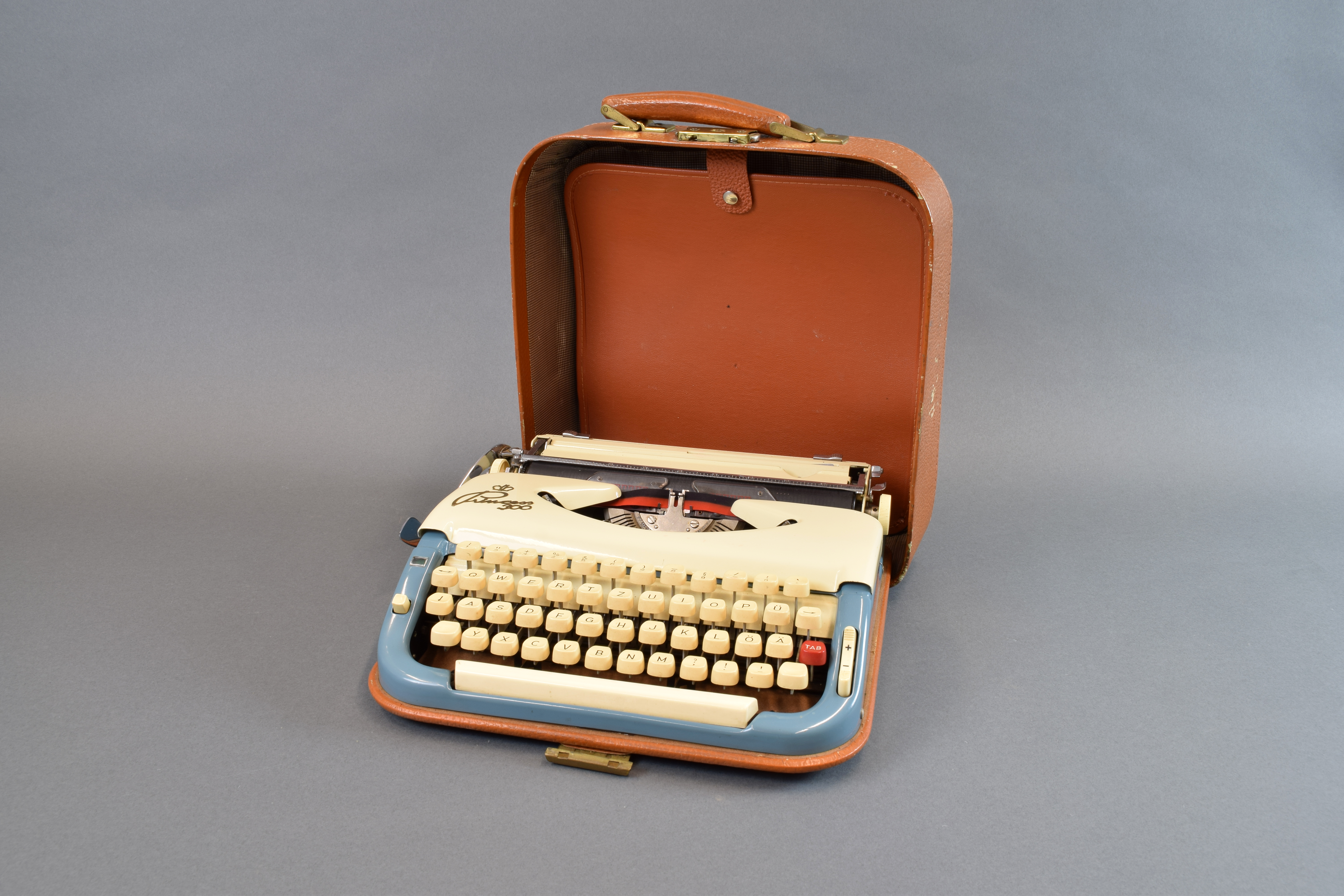
Theodor Wonja Michael's travel typewriter from the 1960s. The typewriter is now part of the DOMiD collection. Photo: DOMiD Archive, Cologne
6000x4000 px / JPG
-
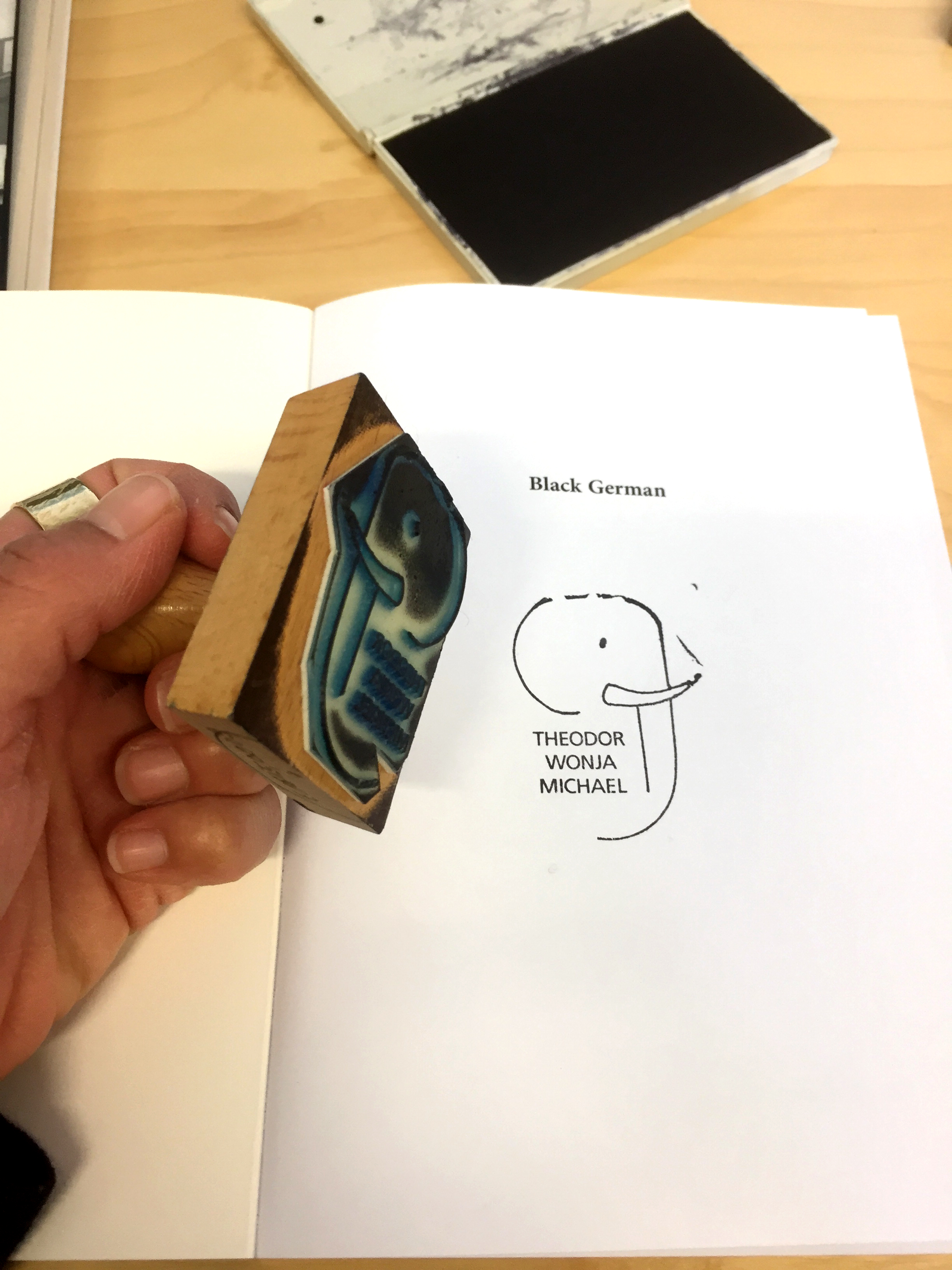
Before the books from the estate of Theodor Wonja Michael were handed over to the library named after him, each book received the personal stamp of Theodor Wonja Michael. Michael chose the elephant as the symbolic animal for his stamp because it has a very good memory. Photo: DOMiD Archive, Cologne
2448x3264 px / JPEG
-
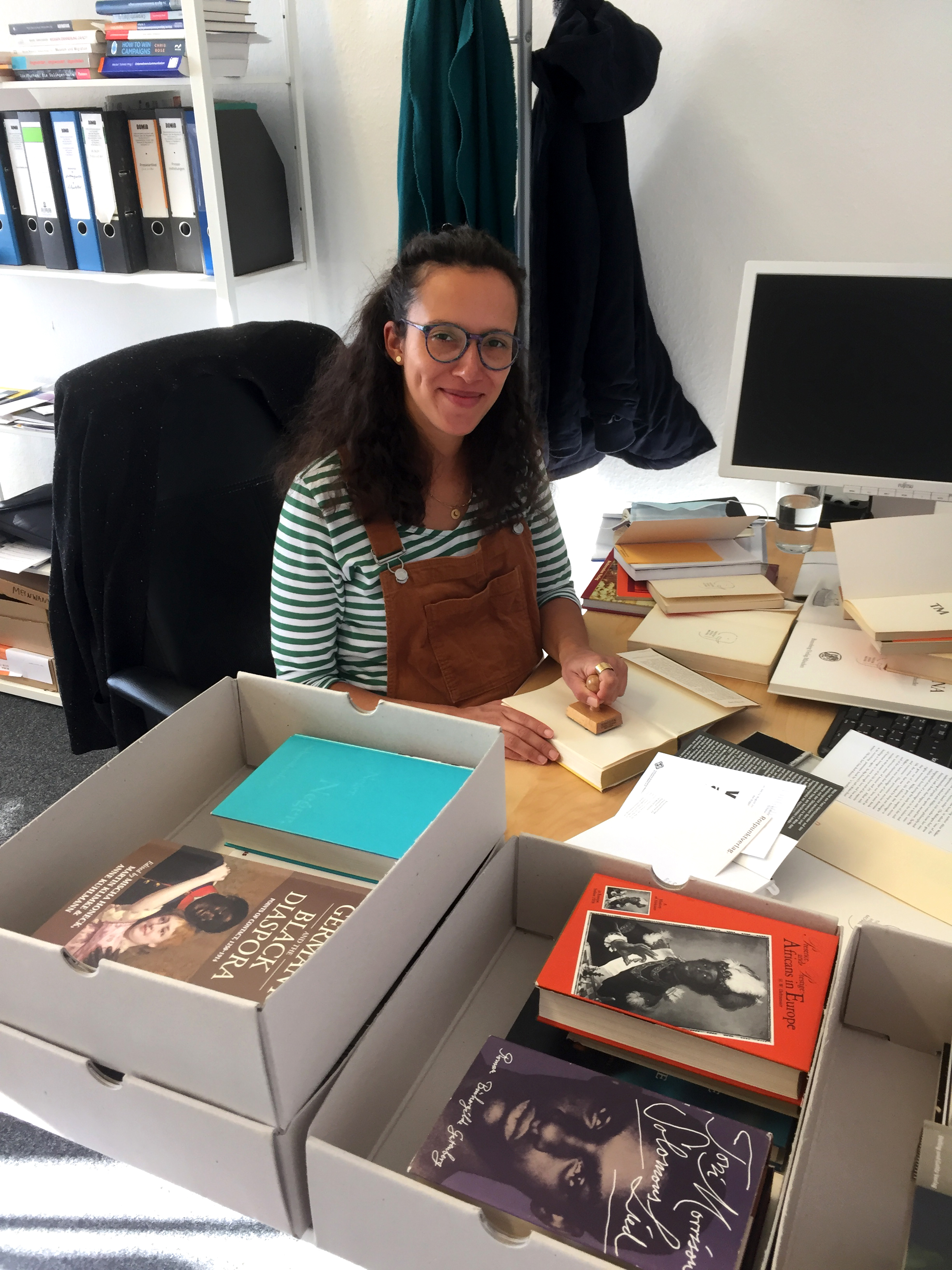
The former DOMiD employee Bebero Lehmann stamps the books from the estate of Theodor Wonja Michael. Photo: DOMiD Archive, Cologne
2448x3264 px / JPEG
-

Sifting through the books during collection by volunteers of the Theodor Wonja Michael Library. Photo: DOMiD Archive, Cologne
480x640 px / JPG
-
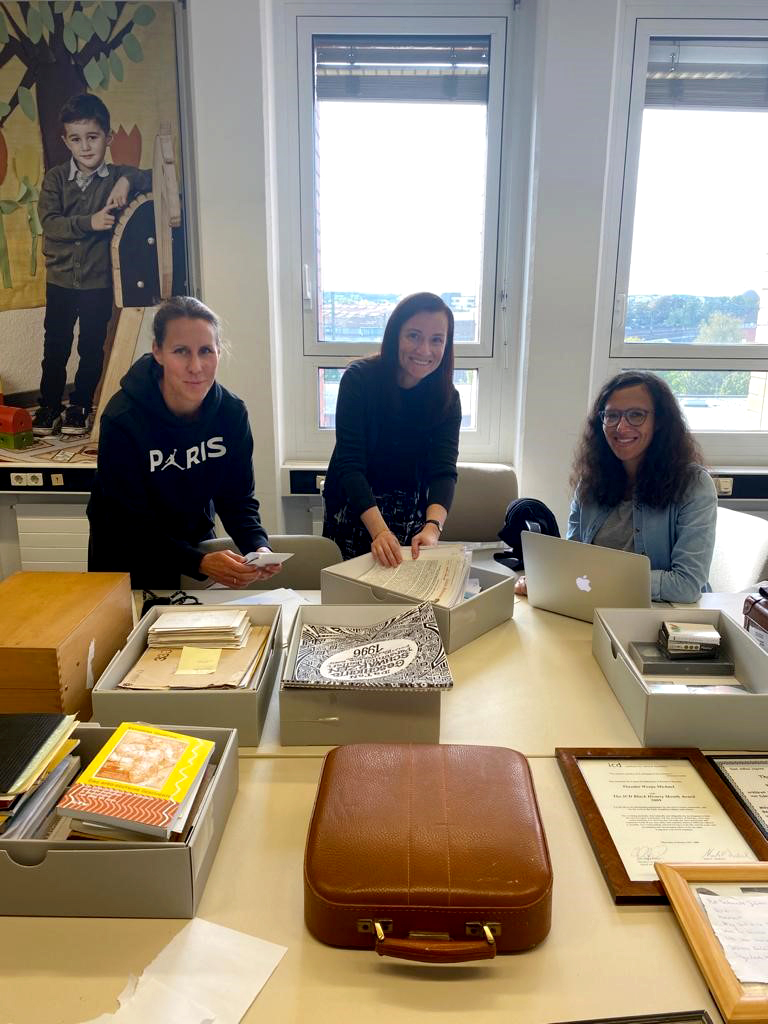
The granddaughter Kirsten Wonja Koehler, DOMiD collection manager Bengü Kocatürk-Schuster and the former research assistant of DOMiD, Bebero Lehmann, during the inspection of the stock, which finds its way into the DOMiD collection as a permanent loan. Photo: DOMiD Archive, Cologne
768x1024 px / JPG
-
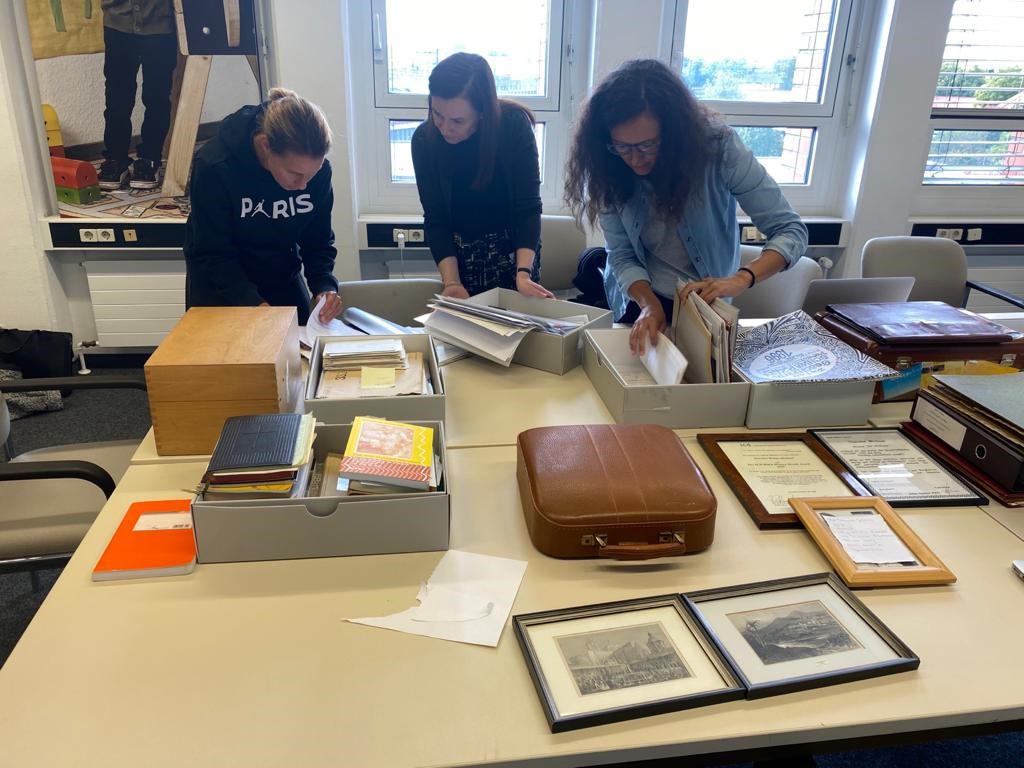
The granddaughter Kirsten Wonja Koehler, DOMiD collection manager Bengü Kocatürk-Schuster and the former research assistant of DOMiD, Bebero Lehmann, during the inspection of the stock, which finds its way into the DOMiD collection as a permanent loan. Photo: DOMiD Archive, Cologne
1024x768 px / JPG
-
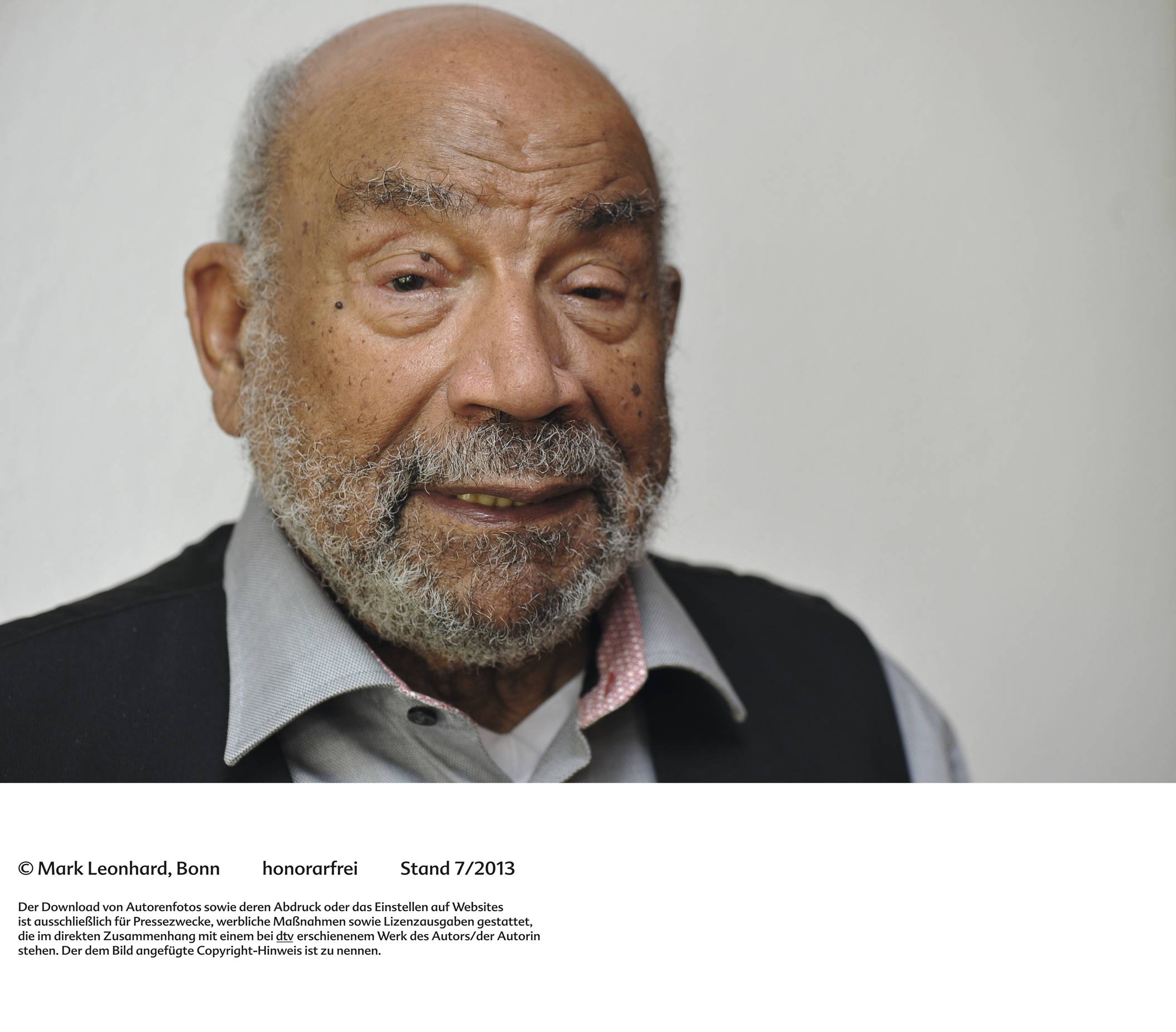
Portrait photo of Theodor Wonja Michael, 2013. Photo: Mark Leonhard, Bonn
2112x1854 px / JPG
-
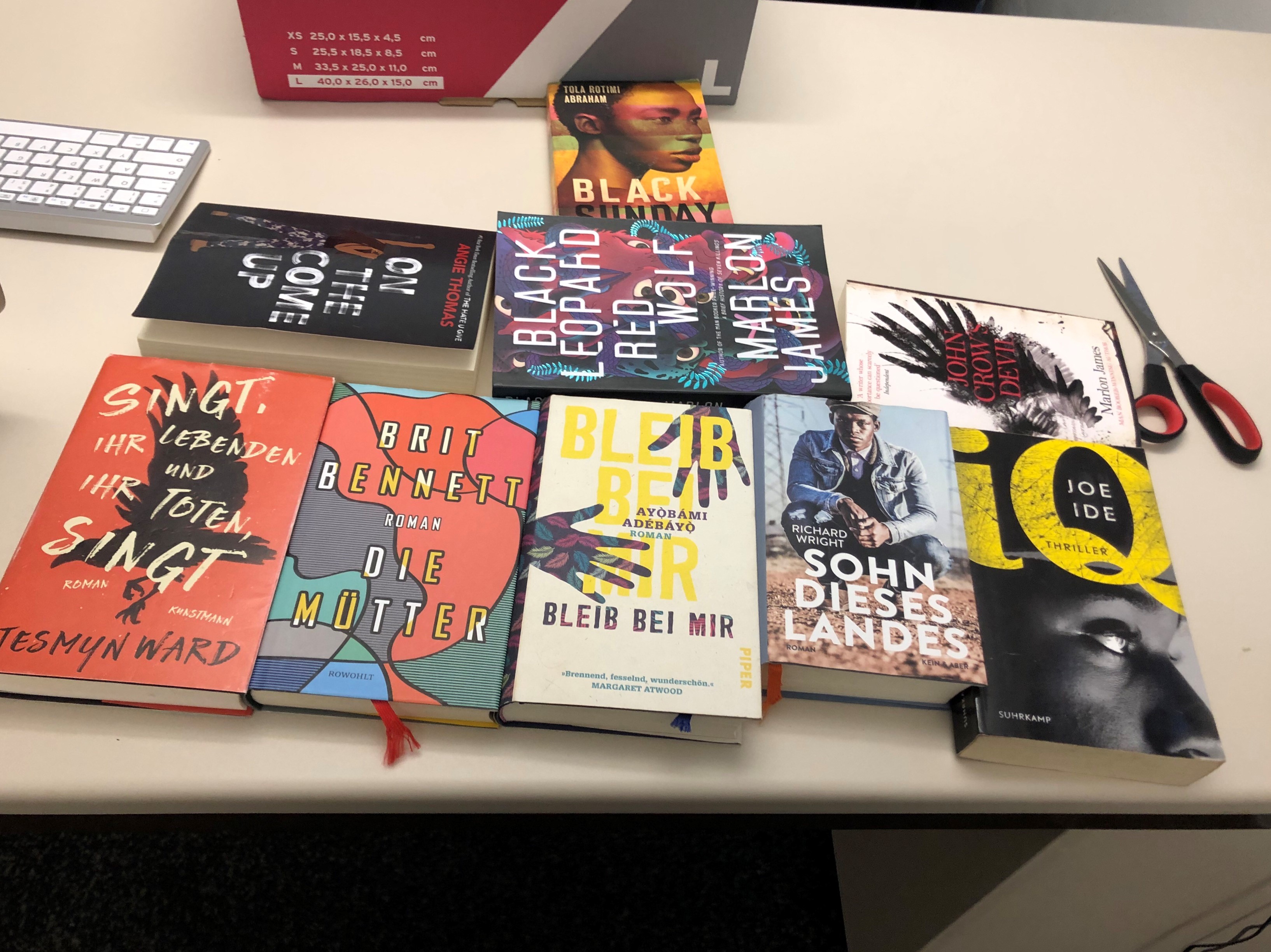
The books from the private library of Theodor Wonja Michael were part of the estate that went to DOMiD. DOMiD has given these books to the newly established Theodor Wonja Michael Library in Cologne. Photo: Sunflowers Community Development Group
3268x2448 px / JPG
-
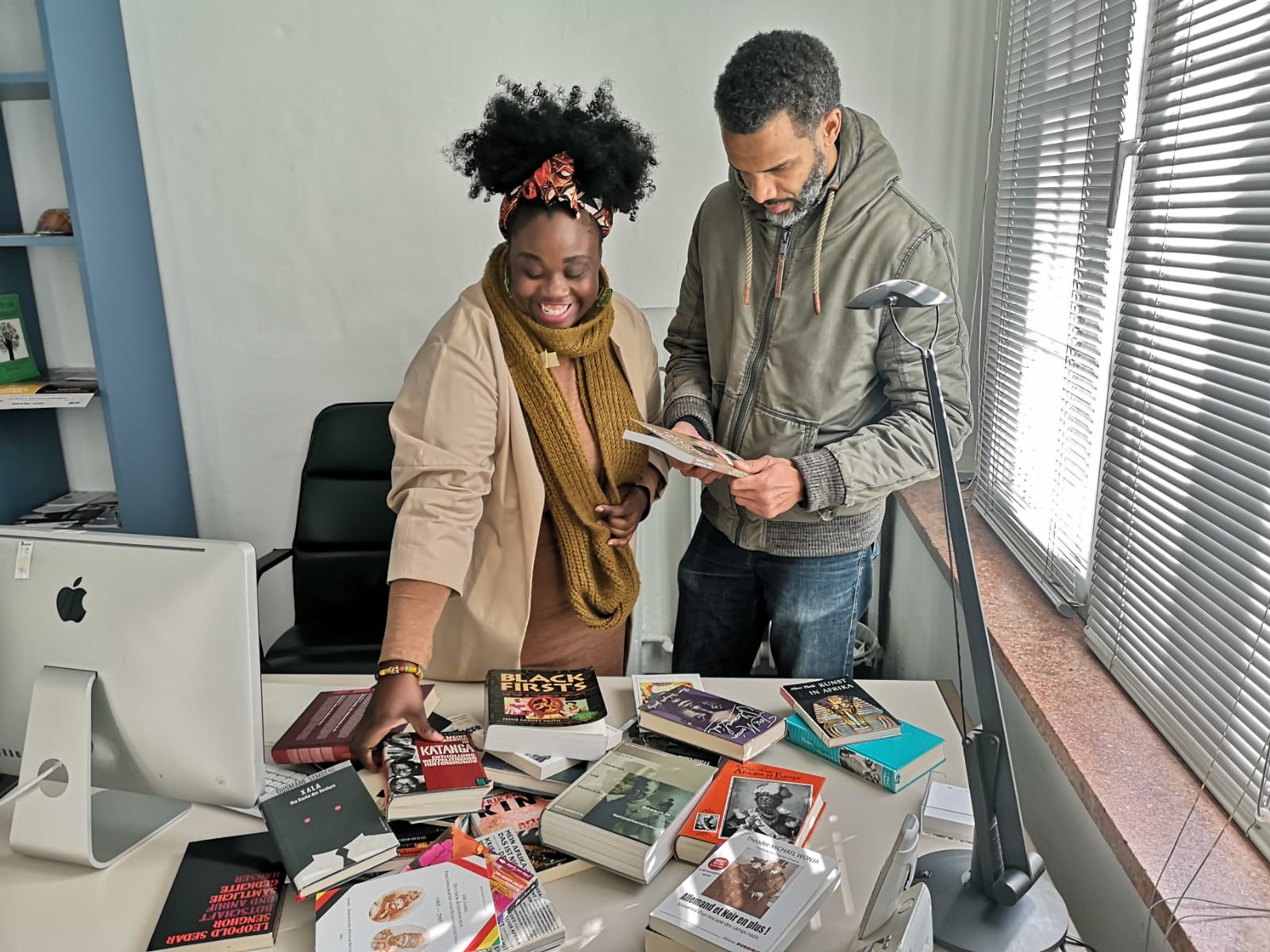
The co-founders of the Theodor Wonja Michael Library, Dr. Njoula Baryoh and Lamin Kargbo, looking through books from Michael's estate. Photo: Sunflower Community Development Group
1600x1200 px / JPG